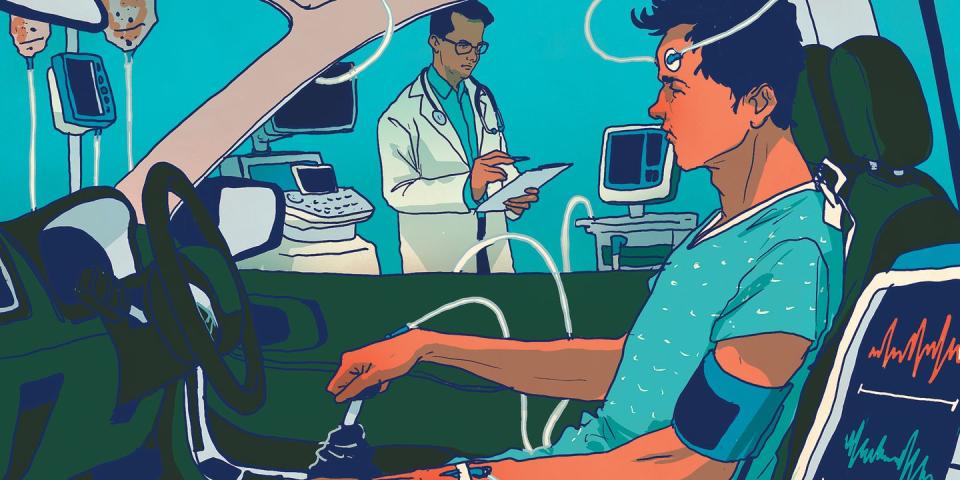Can Your Car Tell If You Have Dementia?

Our driving habits can reveal a lot more about us than simply our personalities. According to a recent study, how we drive may also indicate if we are exhibiting early signs of neurological disorders such as Alzheimer's disease. The study was conceived by Adriana Seelye, an assistant professor in the University of Minnesota's Department of Psychiatry, and it explored whether people with mild cognitive impairment (MCI)-a decline in memory and cognitive abilities that is often a precursor to Alzheimer's-drive differently. If so, medical providers could use data from cars' computers to detect underlying conditions before other warning signs develop.
The researchers' theory panned out. Seelye and her co-authors tracked 28 drivers, average age 82, through their cars' onboard diagnostic ports for 206 days. Seven of the participants had MCI. Seelye found that those seven adjusted their driving to mitigate their diminished abilities, spending less time on freeways and more time on surface streets. "That the MCI drivers spent less time on the highway supports the notion that they are self-regulating their driving and thus exhibiting safer driving habits," Seelye says. "The same reasoning can be applied to the finding of fewer miles driven per day and a trend toward declining time spent driving."
To reach those conclusions, Seelye's team gathered information on the number of drives study participants took, the number of miles driven, total duration of highway driving, and day-to-day variability in miles and driving time. A commercially available device plugged into each car's OBD port collected the data.
"Driving is a cognitively demanding activity," Seelye says, going on to suggest that "any medical condition, neurological or otherwise, that affects higher-order cognition, such as divided attention, memory, or reaction time, could be examined through OBD data."
Based on this first study, the National Institutes of Health awarded Seelye a grant that will allow her to observe, over the course of four years, 130 seniors who currently exhibit no sign of dementia. That effort will add data from wearable fitness trackers to the analysis of participants' driving, with the goal of pinpointing which behavior or combination of behaviors signals a cognitive decline.
When driving data can be connected to such deeply personal information as medical details, privacy concerns bloom. If automakers begin transmitting that data, or if healthcare companies market their own OBD monitors, crooks might be able to intercept that info fairly easily, says Lee Tien, a staff attorney for the Electronic Frontier Foundation. But it's a little early for paranoia. For now, it's reassuring that at least some people with decreased cognitive function adapt their driving habits. Moreover, it's remarkable that the car can help provide the diagnosis.
From the October 2018 issue
('You Might Also Like',)

 Yahoo Autos
Yahoo Autos 